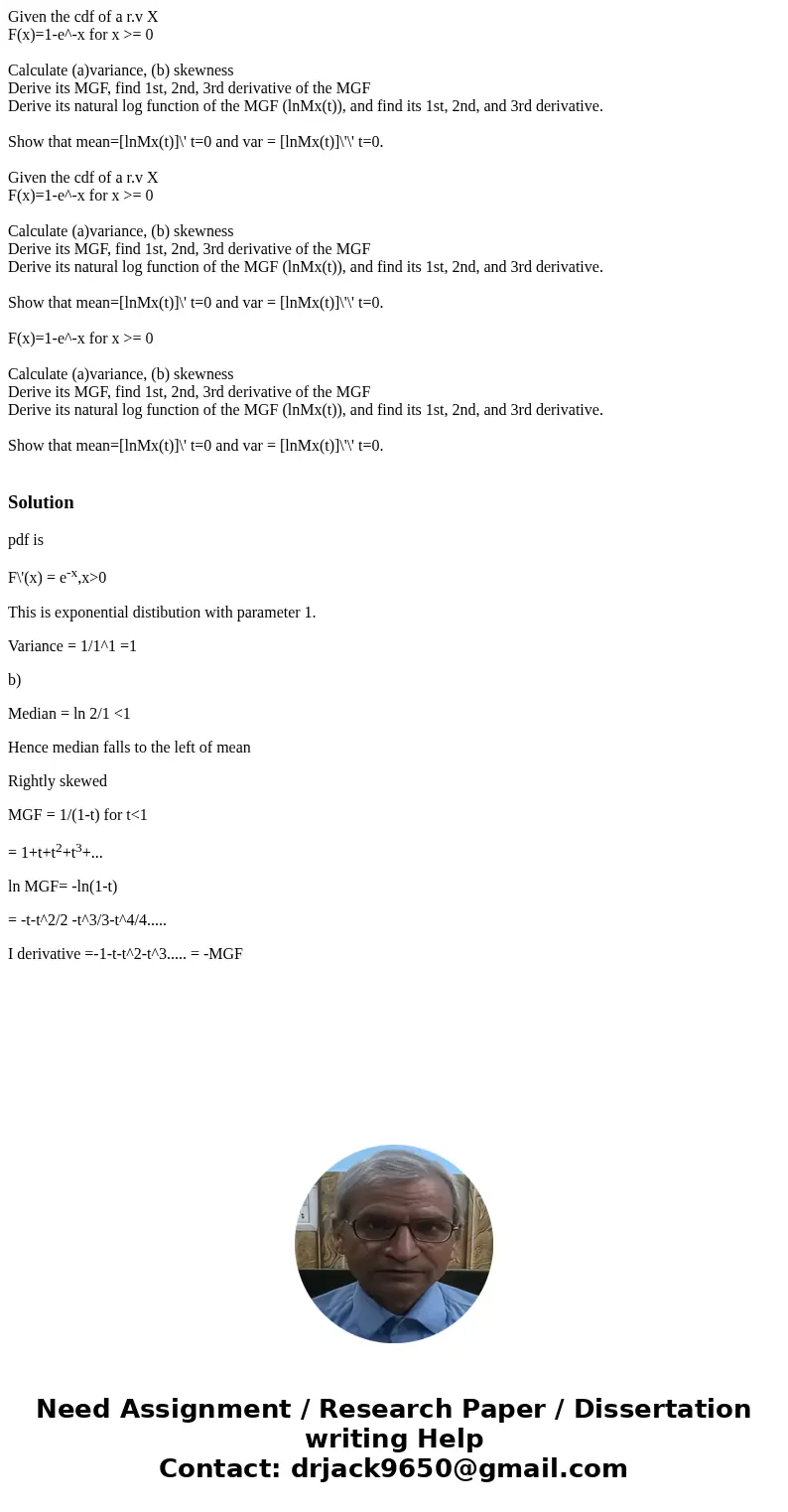Given the cdf of a rv X Fx1ex for x 0 Calculate avariance b
Given the cdf of a r.v X
F(x)=1-e^-x for x >= 0
Calculate (a)variance, (b) skewness
Derive its MGF, find 1st, 2nd, 3rd derivative of the MGF
Derive its natural log function of the MGF (lnMx(t)), and find its 1st, 2nd, and 3rd derivative.
Show that mean=[lnMx(t)]\' t=0 and var = [lnMx(t)]\'\' t=0.
Given the cdf of a r.v X
F(x)=1-e^-x for x >= 0
Calculate (a)variance, (b) skewness
Derive its MGF, find 1st, 2nd, 3rd derivative of the MGF
Derive its natural log function of the MGF (lnMx(t)), and find its 1st, 2nd, and 3rd derivative.
Show that mean=[lnMx(t)]\' t=0 and var = [lnMx(t)]\'\' t=0.
F(x)=1-e^-x for x >= 0
Calculate (a)variance, (b) skewness
Derive its MGF, find 1st, 2nd, 3rd derivative of the MGF
Derive its natural log function of the MGF (lnMx(t)), and find its 1st, 2nd, and 3rd derivative.
Show that mean=[lnMx(t)]\' t=0 and var = [lnMx(t)]\'\' t=0.
Solution
pdf is
F\'(x) = e-x,x>0
This is exponential distibution with parameter 1.
Variance = 1/1^1 =1
b)
Median = ln 2/1 <1
Hence median falls to the left of mean
Rightly skewed
MGF = 1/(1-t) for t<1
= 1+t+t2+t3+...
ln MGF= -ln(1-t)
= -t-t^2/2 -t^3/3-t^4/4.....
I derivative =-1-t-t^2-t^3..... = -MGF

 Homework Sourse
Homework Sourse